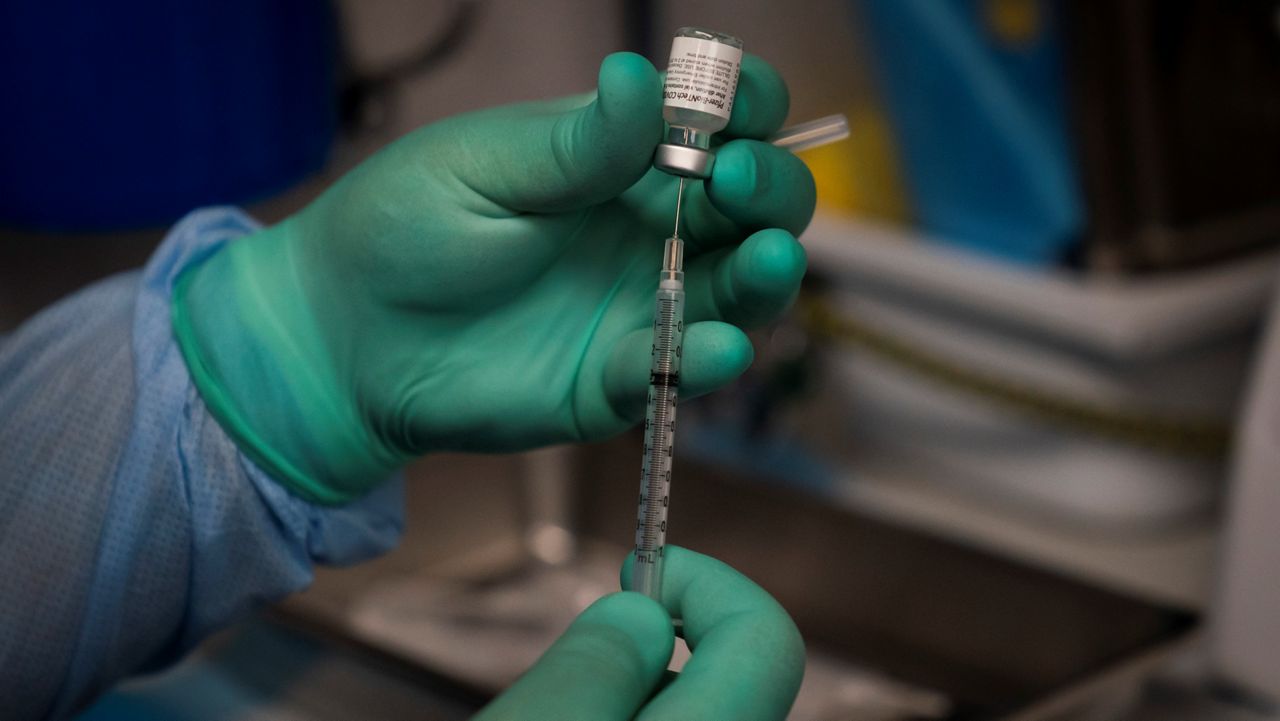The Food and Drug Administration (FDA) on Wednesday authorized booster doses of the Pfizer-BioNTech's COVID-19 vaccine for Americans 65 years of age and older, and those who are at high risk from the virus.
The move brings the U.S. one step closer to administering boosters, but more regulatory hurdles lie ahead.
A panel from the U.S. Centers for Disease Control and Prevention (CDC) is expected to consider the FDA’s guidance Thursday and offer their recommendation, which CDC Director Dr. Rochelle Walensky would then have to accept before boosters could be dispensed.
Advisers to the CDC opened a two-day meeting Wednesday to make their own, more specific recommendations about who should get the extra shots and when. And in their first day of discussions, some experts were so perplexed by the questions surrounding the rationale for boosters that they suggested putting off a decision for a month in hopes of more evidence.
The timing of the FDA decision was highly unusual given that the agency typically takes action before the CDC convenes its own experts.
The FDA’s new guidance applies to Americans 65 years of age and up, immunocompromised individuals, those who are more susceptible to the virus and people whose professions put them at higher risk for contracting the disease.
The CDC panel on Wednesday separately grappled with the question of which Americans should get COVID-19 booster shots.
CDC officials presented data from several U.S. studies, saying there is growing evidence of a decline in the effectiveness of both the Pfizer and Moderna vaccines in preventing new COVID-19 infections in some groups, most notably people 65 and older and health care workers who got shots early in the vaccination campaign.
There’s also a hint that at age 75, there may be some decline in protection against hospitalization. But the CDC said there is little information on waning immunity in younger people with chronic medical problems.
Several panelists voiced concern over the public confusion that could result if they recommend a booster only for certain recipients of the Pfizer vaccine. That could leave people vaccinated with Moderna or Johnson & Johnson shots wondering what to do.
The meeting was devoted to Pfizer booster shots only. Moderna’s application to dispense third doses is not as far along in the process. And a major U.S. study on whether mixing-and-matching booster doses is safe and effective isn’t finished.
The CDC panel was scheduled to resume on Thursday, but it was not immediately clear whether that would happen, as the FDA typically announces its decision on a certain vaccine before the CDC panel reviews the data.
The updated guidance for Pfizer’s booster shots will not go into effect unless and until the CDC advisory panel similarly recommends its use in at-risk populations.
The conditional approval comes after an independent FDA advisory panel on Friday declined to recommend a third dose of the Pfizer vaccine for most Americans, instead opting to endorse booster doses only for senior citizens and those at high risk from the virus.
At the time, members cited a lack of safety data on extra doses and raised doubts about the value of mass boosters, rather than ones targeted to specific groups.
The panel’s decision delayed the Biden administration’s initial plan to make Pfizer and Moderna booster shots widely available starting the week of Sept. 20 -- but administration officials remain cautiously optimistic that the FDA might revise its decision as new data becomes available.
The Associated Press contributed to this report.



